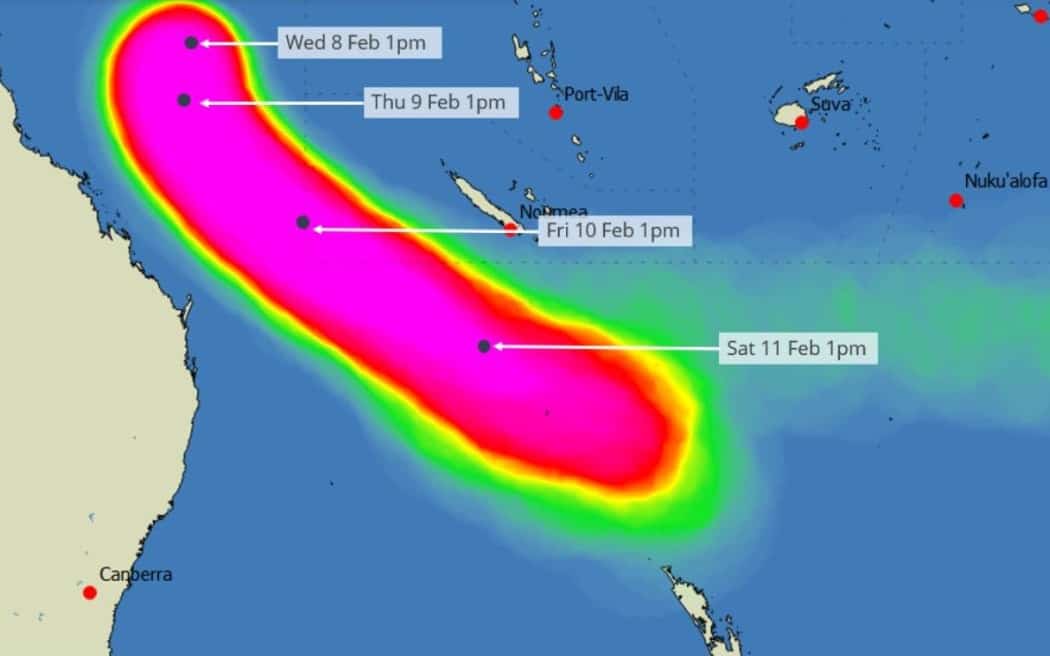New Zealand declared a national state of emergency for only the third time in its history on Tuesday as Cyclone Gabrielle caused widespread flooding, landslides and huge ocean swells, forcing evacuations and stranding people on rooftops.
“It has been a big night for New Zealanders across the country, but particularly in the upper North Island … a lot of families displaced, a lot of homes without power, extensive damage done across the country,” Prime Minister Chris Hipkins told reporters after the declaration.
Gabrielle is 100 km (60 miles) east of Auckland, near the east coast of the country’s North Island and is expected to move east-southeast, roughly parallel to the coast.
Kieran McAnulty, minister of emergency management, said that while New Zealand was now through the worst storm, more rain and high winds were expected.
He added that the country was suffering from extensive flooding, landslides, and damage to roads and infrastructure.
Severe weather would extend to the upper South Island as the cyclone moved, the weather forecaster said.
Authorities have evacuated beach settlements and are still asking people to leave home as rivers swell and the tide rises. Roads are closed, mobile phone services are down, and some towns are cut off.
Hipkins said it was too early to say how many people had been displaced or injured. No deaths have been confirmed.
Parliament will sit Tuesday afternoon briefly but will be adjourned until Feb. 21 because of the cyclone.
Local media publish photographs and videos of people sitting on top of buildings surrounded by flood water, houses swept to the bottom of hills by landslides, and roads under water.
The national fire and emergency service said that a volunteer firefighter remained inside a house that had slid down a hill in a beachside town. Another had been rescued and was in critical condition in hospital, it said.
A New Zealand navy warship is heading to a yacht that turned on its emergency beacon this morning off the east coast.
New Zealand declared a national emergency after an earthquake in 2011 and when the COVID-19 pandemic hit in 2020. (Reuters)






